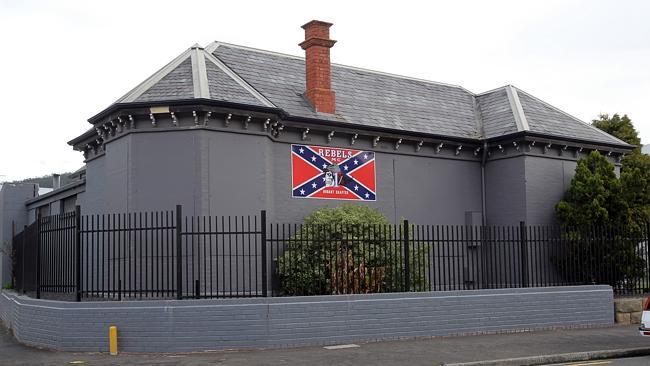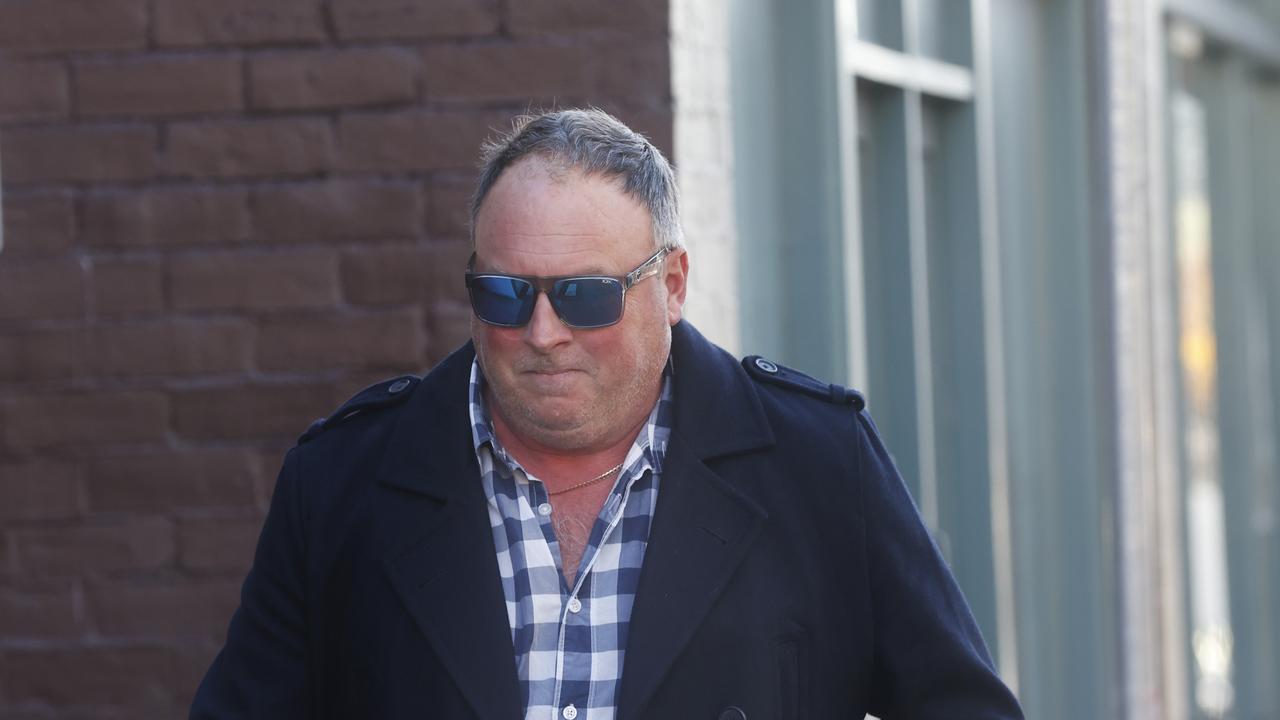Tasmania’s lone voice against bikie clubhouse expansion says communities need right to say no
LOCAL councils across Tasmania say they are powerless to stop outlaw motorcycle gang clubhouses springing up.

Tasmania
Don't miss out on the headlines from Tasmania. Followed categories will be added to My News.
LOCAL councils across Tasmania say inconsistent planning rules and flawed liquor licensing procedures have left them powerless to stop outlaw motorcycle gang clubhouses springing up, even though bikies have been blamed for the spread of drugs including ice.
One councillor called for greater community consultation in approval processes, while another claimed the State Government failed to distinguish between “ice cream shops and brothels” when it came to planning legislation.
The major outlaw bikie gang operating in Tasmania, the Rebels, has seven clubhouses throughout the state — in North Hobart, Hobart’s Eastern Shore, Devonport, Kingston, New Norfolk, Smithton and Sorell.
Outlaw gangs the Black Uhlans, Devil’s Henchmen, Finks, Outlaws and Satan’s Riders also have a Tasmanian presence.
Applications by the Rebels for planning approval, liquor licences and liquor permits for clubhouses have been granted by councils — even though the Rebels nationally have been identified by the Australian Crime Commission as a major criminal organisation.

The Rebels’ national president and convicted drug criminal Alex Vella — a Maltese citizen who has been refused a visa to return to Australia after holidaying in his native country — has strong connections to Tasmania and owns property used as Rebels clubhouses in North Hobart, Sorell and Launceston.
Vella’s son Alex Jr was also listed as the owner of waterfront land at Triabunna.
In July, six men were arrested, including four alleged Rebels members, in what Tasmania Police described as the biggest drug bust in the state’s history. Police alleged 4kg of high-grade amphetamine worth about $10 million was intercepted before it hit the streets.
A further 4kg of the drug, worth another $10 million, was seized by police in Queensland — and police believed that too was bound for Tasmania.
Three of the men charged were alleged to be members of the Eastern Shore chapter of the Rebels.
Police alleged the Rebels were going to distribute the drugs via their networks into Tasmania.
Last year, an application to extend the operating hours of the Rebels’ North Hobart bar was approved by Hobart City Council, with just one councillor — Alderman Eva Ruzicka — voting against the bid.
Ald Ruzicka told the Sunday Tasmanian she considered the Rebels’ argument that the building would be used as a “community centre” did not stack up.
“I decided that discretion was the better part of valour in this matter,” Ald Ruzicka said.
“It did not, to my mind, fit the idea of what a community centre is and generally how they run. It struck me that they were trying to do a very creative interpretation.”
Ald Ruzicka said police and the community must have a bigger say in the approval of bikie gang clubhouses, but she feared the Government’s proposal for a single statewide planning scheme would make the situation even worse by further limiting the public consultation process.
The alderman’s comments came in the wake of revelations in a Four Corners program on the ABC that bikies were targeting regional Australia in their distribution of crystal methamphetamine, or ice, and as many as one in seven residents of the North-West town of Smithton could be using the drug.
While not suggesting that ice was being sold or distributed from the Rebels’ North Hobart clubhouse, Ald Ruzicka said that if residents and police had concerns about the use of a premises, they should be heard.
She said residents were not properly represented in the process because they did not wish to be named.
“This either tells you that they didn’t have any real concerns or, given the nature of the applicant, they were unwilling to go public,” Ald Ruzicka said. “I am not implying in any way, shape or form that this centre is running methamphetamine out of it. But Tasmania Police came to us and they made a case at the committee meeting that I believe was worth listening to.”
Police told Hobart Council that, based on their intelligence, the Rebels presented a risk and the group’s application should not be approved.
Hobart Mayor Damon Thomas told the Mercury last week the Government should introduce a “social impact” test to give local councils greater control over licensed venues.
The State Government has pledged to replace 34 separate council planning schemes, that govern building type and use in communities with a single entity.
But Ald Ruzicka said a single planning scheme was no solution.
“The planning system is about building property, it’s not about whole-of-community issues. We’re going to get dumbed-down planning,” she said.
Mayoral candidates canvassed by the Sunday Tasmanian in Hobart, Kingborough and Circular Head — all home to bikie gang premises — blamed the current planning system for stifling local debate.
“It’s a bit like brothels,” Kingborough councillor Flora Fox said. “The State Government doesn’t discern between whether it’s an ice cream shop or a brothel.”
Planning Minister Peter Gutwein said councils with concerns should raise them with the Government.
Councils are also calling for more say on who receives liquor licences and permits in their area.
Short-term permits are available for up to a year, allowing alcohol to be served for 15 hours per week — and eight are currently held by motorcycle clubs around the state.
“They don’t have to go through council for that and I think they should,” Ms Fox said.
A Government spokesman said the permits were not granted automatically and they could be rescinded.
“Where clear evidence is provided to the commissioner that it is not in the best interests of the community to grant a permit, a permit will not be granted,” he said.
Almost universally, mayoral candidates said they had seen no evidence of criminal activity among outlaw motorcycle gangs.
“I know there are places where, apparently, ice is being sold which have got nothing to do with bikies,” said Circular Head mayor Daryl Quilliam, whose municipality takes in Smithton.
“Since the Four Corners report I’ve had a couple of the gangs talk to me and they said there was definitely no ice traded on their premises,” he said. “They basically stated that if anybody was caught with ice on their premises then they would not be able to stay there.”
david.beniuk@news.com.au


